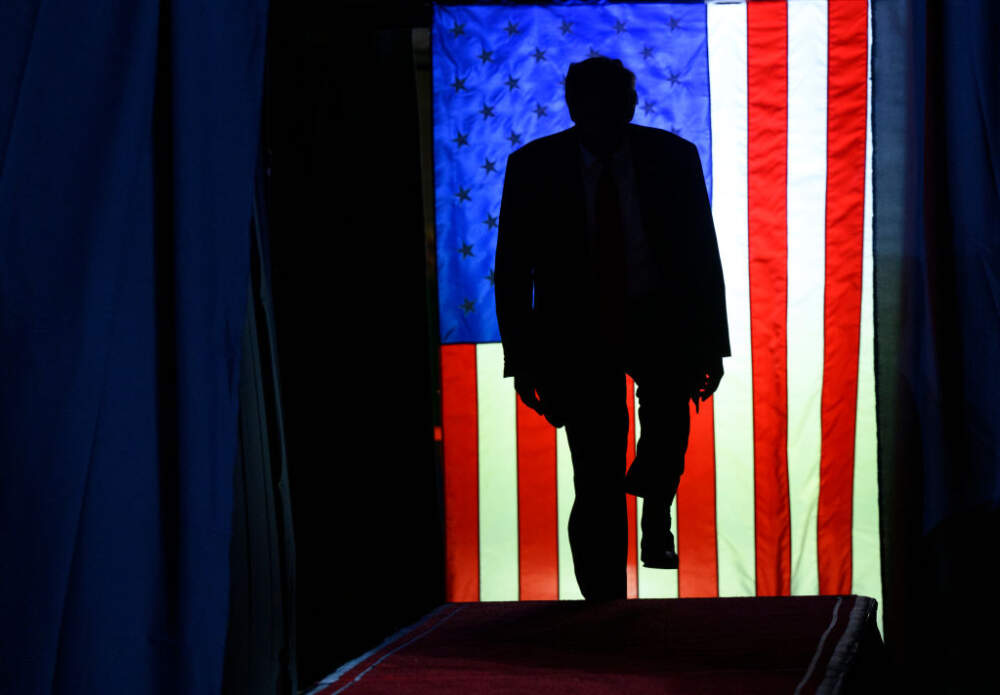Advertisement
Commentary
American democracy is fragile, not exceptional

Following a two-week cultural frenzy filled with “Barbenheimer” chatter, former President Donald Trump’s legal saga might seem like a fictional series in a dark political thriller. Yet, the four-count indictment by a grand jury against the former president to subvert and overturn the 2020 election is a monumental occurrence in our nearly 250-year democracy — and very real.
Unlike the previous two charges, which were related to the president’s actions while a candidate and after he left the White House, the most recent indictment addresses the criminality of his actions as a sitting president of the United States to conspire and attempt to impede the 2020 electoral process and count.
While this is historic for the United States, Trump is part of a band of populist right-wing leaders on the international stage who face criminal charges, including Prime Minister Benjamin Netanyahu of Israel and former President Jair Bolsonaro of Brazil. All three leaders have mastered the authoritarian playbook of breeding disinformation, waging culture wars and using the state apparatus to aggrandize their power.
If we have learned anything in the last seven years, it is that we cannot take democracy for granted, even in America.
In the case of Prime Minister Netanyahu, despite his ongoing corruption case, which started in 2016, Israel’s Supreme Court unanimously voted to allow him to seek political office, paving the path to his current position as prime minister where he is working to restrict the court’s power. In contrast, Brazil’s highest electoral court, in June, found former President Bolsonaro, known as the “Trump of the Tropics,” guilty of spreading disinformation about the electoral system with foreign diplomats. As a result, the court has barred him from running for office until 2030.
As many legal scholars have noted, Trump’s indictment or even conviction will not bar him from continuing with his presidential campaign. Could he become the next president? We don’t know. While the veil of American exceptionalism often leads to the reaction: “How could that happen here?” — the reality is that it has happened, and it is happening. If we have learned anything in the last seven years, it is that we cannot take democracy for granted, even in America.
This indictment will also test Trump’s stronghold on the MAGA movement. The three pillars animating the MAGA phenomenon are encapsulated as “Guns, God and Trump.” Despite capturing the vast majority of the Republican party and the spread of the movement, Trump continues to be the formidable singular force behind MAGA. According to recent polls, none of his acolytes, including Gov. Ron DeSantis, have been able to muster real competition against Trump’s populist base.
In Brazil, the right-wing movement that propelled Jair Bolsonaro to the presidency on the pillars of, “Beef, Bible and Bullets” has shown much resilience beyond Bolsonaro. In the aftermath of his being barred from seeking office, the right-wing political machinery has already shifted to cultivating potential successors such as the governor of the state of São Paulo, Tarcísio de Freitas. How the indictment against Trump and its aftermath will shape the 2024 campaign is yet to be seen, but it will certainly test the fortitude and resilience of the MAGA movement.
As the case continues to unfold in a presidential campaign cycle, learning from examples and trends in other countries will be instrumental for the future of our democracy, including around countering mis- and dis-information and mitigating political violence. Ironically, this is what the right-wing extremist movement has mastered — cross-border learning. If lessons can be imported and exported to dismantle democracy, they can also be used to save it. This is precisely why I founded the nonpartisan nonprofit organization Keseb — to create a transnational pro-democracy ecosystem for learning, collaboration and innovation.
If lessons can be imported and exported to dismantle democracy, they can also be used to save it.
Particularly in the U.S., where there is often a reluctance to look beyond our borders to draw insights, this somber moment calls for us to use everything at our disposal to build and strengthen the pro-democracy coalition. For example, one of the most instructive lessons from the Israel protests, unfolding over the last few months in opposition to Prime Minister Netanyahu’s judicial overhaul, has been the forging of a strong cross-ideological coalition. As one activist articulated: “We should be glad about the greatest achievement we got: the creation of a new kind of centrist identity. This center includes various shades, from the capitalist, hawkish right that believed in Netanyahu so far but not anymore, through the liberal center and up to the social-democratic left.”
Policy differences and ideological diversity are central to a democracy, but the mechanism through which to sort these differences must remain within the parameters of a democratic system. Therefore, irrespective of our policy inclinations, whether in Brazil, Israel or the United States, we should all be outraged by any leader or movement that seeks to dismantle our fundamental right to a democratic process. And it is this foundational principle that I hope will galvanize a renewed and unified commitment to broaden and strengthen the American and global pro-democracy coalition at this pivotal moment.
